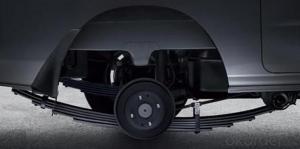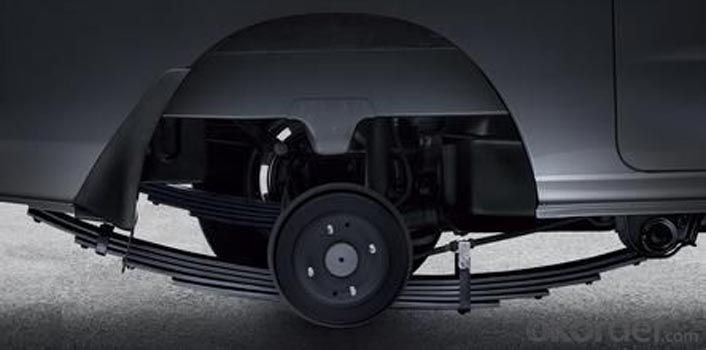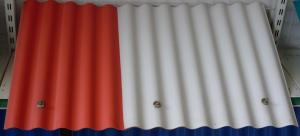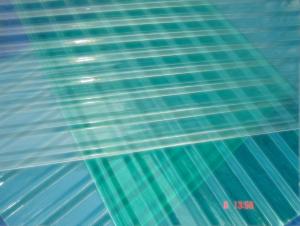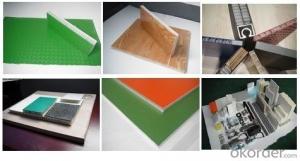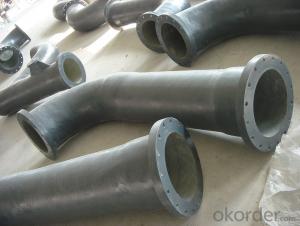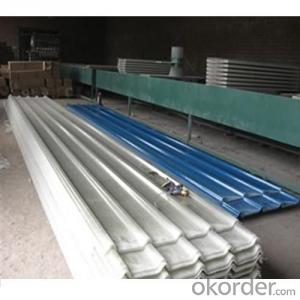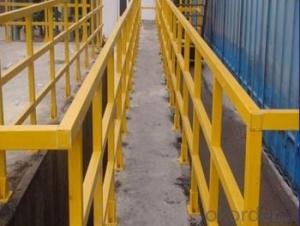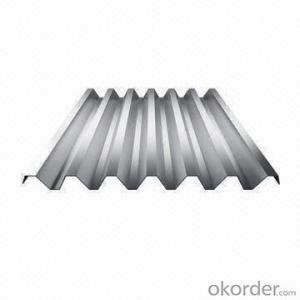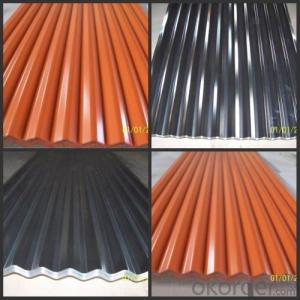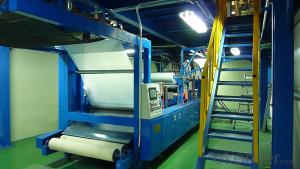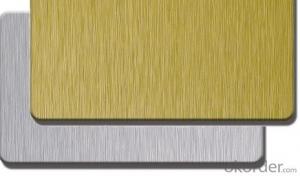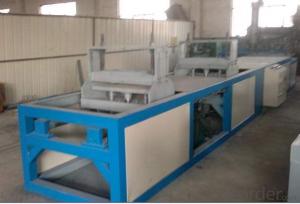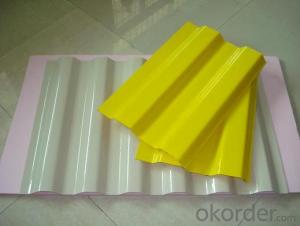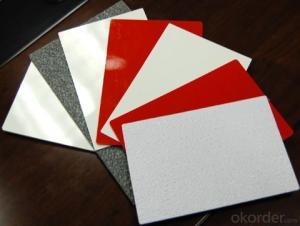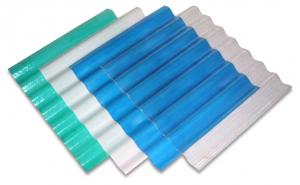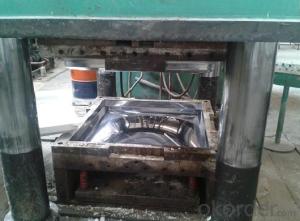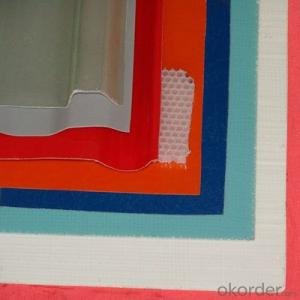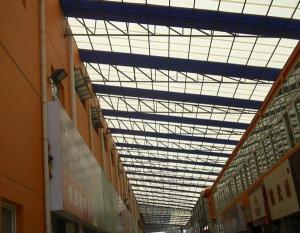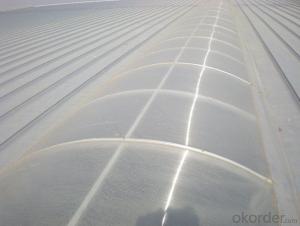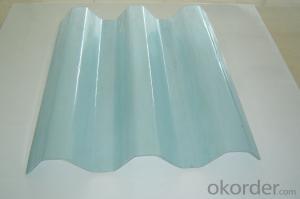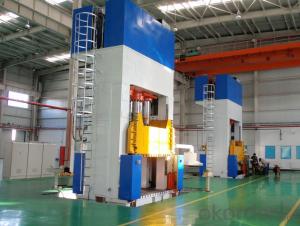FRP Roofing Panel Reinforced SMC Pressed Composite Leaf Spring for Automobiles
- Loading Port:
- Tianjin
- Payment Terms:
- TT or LC
- Min Order Qty:
- 1000 m²
- Supply Capability:
- 100000 m²/month
OKorder Service Pledge
OKorder Financial Service
You Might Also Like
Introduction
SMC and BMC are abbreviations of respectively Sheet Molding Compound and Bulk Molding Compound. SMC and BMC form a family of structural, fiber reinforces thermosetting resins. SMC and BMC are intermediate materials from which a large variety of products can be manufactured by compression molding or injection molding. Base materials of SMC and BMC are, generally spoken, unsaturated polyester resins, glass and mineral filler materials, such as chalk or aluminum trihydrate. The composition of the compounds can be adapted to the application where it is used for. Specific properties such as flame retardancy, surface quality and paintability can be achieved by adding specific, functional materials. SMC and BMC product are used in a very broad range of applications
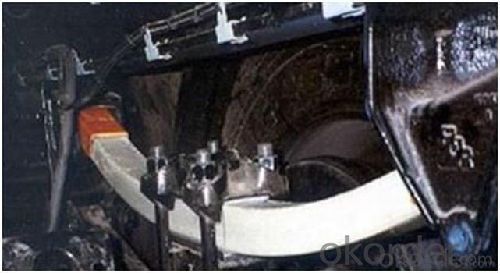
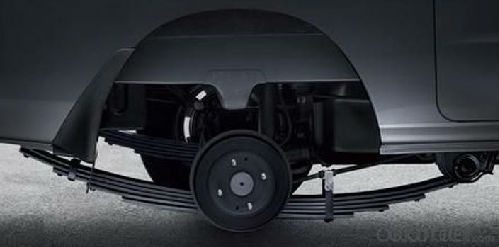
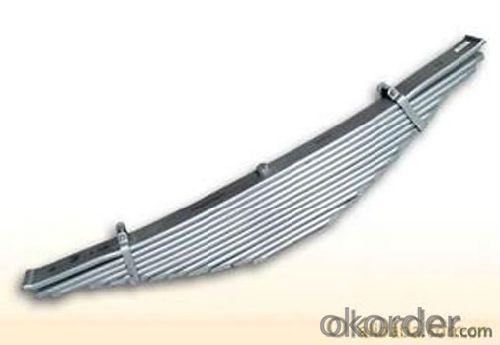
Product Description
1. Y27 Series Frame-type Hydraulic Press is a kind of multifunctional precision machine which has high speed.
2. Cartridge valve equipped for hydraulic control system, reliable, durable and less hydraulic shock, shorter connection pipeline and fewer release points.
3. Optimized design, the frame is entirely welded with steel plates, and treated to relive stress by tempering for high precision.
4. Centralized button control system, with adjustment, hand and semi-auto operation modes at operator’s choice (set-stroke single and set pressure single).
5. Four-angle and eight-side guide rail in high precision and with strong capacity against deflection, concentrated lubrication.
6. New type of oil cylinder sealing components marked by high reliability and long service life.
7. Sliding blocks operating in high speed, ensuring high efficiency.
8. The slide operating pressure, no-load quick travel and low-speed movement can be adjusted according to technological requirements.
9. Hydraulic cushion is fitted beneath the worktable; adequate knockout hole and hydraulic cushion are prepared on the plate of worktable with the operating modes including drawing, ejection and no ejection.
Application
1. It is suitable for the press fitting and stretch forming of metal and plastic products as well as the movements of coining and overprinting.
2. It mainly applies to the fields of machine tool, engineering machinery, bearings, washing machine, automobile parts, motor components and powder metallurgy.
3. It is suitable for the molding of plastic products, such as DMC and BMC.
4. The machine, with a high degree of automatization, is particularly suitable for the mass production of parts. And it can be used as assembly line with several such equipments.
Specification
Item | Unit | Y27-500 | |
Nominal Force | KN | 5000 | |
Return Force | KN | 900 | |
Ram Stroke | mm | 900 | |
Daylight | mm | 1400 | |
Cushion Force | KN | 2000 | |
Cushion Return force | KN | 780 | |
Cushion Stroke | mm | 350 | |
Ram Speed | Idle Stroke | mm/s | 150 |
Pressing | mm/s | 10-22 | |
Return | mm/s | 120 | |
Cushion Speed | Knock out | mm/s | 55 |
Return | mm/s | 140 | |
Table Size | LR | mm | 2200 |
FB | mm | 1600 | |
Cushion Size | LR | mm | 1720 |
FB | mm | 1120 | |
Overall Dimensions | LR | mm | 4700 |
FB | mm | 3100 | |
Height above the floor | mm | 5800 | |
Power Motor | KW | 2*30 | |
Total Weight(Approx) | KG | 57000 | |
FAQ
1.Which country do you mainly export to?
A: Our products are very popular in Mid East, India, South East Asia, Latin America, Africa.
2.Q: What’s the advantage of you compared with other suppliers experienced in foreign trade?
A: We have been specialized in FRP products for over decades years and approved by many domestic companies. Except for our quality and price, we’re also able to give you the best service.
- Q: How do FRP roofing panels perform in extreme weather conditions?
- FRP roofing panels are known for their exceptional performance in extreme weather conditions. They are highly resistant to the damaging effects of intense heat, heavy rain, wind, and even hail. Their durable construction and UV protection allow them to withstand prolonged exposure to sunlight without fading or deteriorating. Additionally, FRP roofing panels are designed to be highly water-resistant, preventing leaks and water damage. Overall, FRP roofing panels are a reliable choice for withstanding the challenges posed by extreme weather conditions.
- Q: Can FRP roofing panels be installed on wooden structures?
- FRP roofing panels can indeed be mounted onto wooden structures. Their lightweight nature allows for easy installation on different surfaces, including wood. The crucial aspect to consider during the installation of FRP panels on wooden structures is to ensure a proper installation process. This involves confirming that the wooden structure is in good condition, devoid of any decay or harm, and providing adequate support for the panels. It is also imperative to adhere to the manufacturer's installation guidelines and recommendations to achieve a secure and long-lasting outcome. In summary, by implementing appropriate installation techniques, FRP roofing panels can be effectively affixed onto wooden structures, creating a resilient and weather-resistant roofing solution.
- Q: Can FRP roofing panels be used for greenhouses or garden sheds?
- Yes, FRP (Fiberglass Reinforced Plastic) roofing panels can be used for greenhouses or garden sheds. FRP panels are durable, lightweight, and resistant to weathering, making them an ideal choice for these structures. They provide excellent insulation, allowing sunlight to pass through while keeping the interior temperature regulated. Additionally, FRP panels are easy to install and maintain, making them a popular option for greenhouse and garden shed roofing.
- Q: Are FRP roofing panels suitable for shopping malls?
- Yes, FRP (Fiberglass Reinforced Plastic) roofing panels are suitable for shopping malls. FRP panels have several advantages that make them a popular choice for commercial buildings like shopping malls. Firstly, FRP panels are lightweight, making them easy to install and handle during construction or renovation. This can significantly reduce construction time and costs. Additionally, FRP roofing panels are highly durable and resistant to various environmental factors such as UV rays, moisture, and chemicals. This durability ensures that the roofing system remains intact for a longer duration, reducing the need for frequent repairs or replacements. This is particularly important for shopping malls, which experience high foot traffic and require a reliable roofing system to protect shoppers and merchandise from any potential leaks or damages. Moreover, FRP panels offer excellent insulation properties, providing thermal efficiency and reducing energy consumption by maintaining a comfortable temperature inside the shopping mall. This can result in cost savings on heating and cooling expenses. Furthermore, FRP roofing panels are available in a wide range of colors, finishes, and profiles, allowing architects and designers to create aesthetically pleasing and visually appealing shopping mall structures. The flexibility in design options ensures that the roofing system can complement the overall theme and style of the shopping mall. In conclusion, FRP roofing panels are a suitable choice for shopping malls due to their lightweight nature, durability, resistance to environmental factors, insulation properties, and design flexibility. These panels provide long-lasting protection, energy efficiency, and aesthetic appeal, making them an ideal roofing solution for commercial buildings like shopping malls.
- Q: How long do FRP roofing panels last?
- The durability and longevity of FRP roofing panels are well-known. With proper installation and maintenance, these panels can typically last anywhere from 20 to 30 years. However, the lifespan of FRP roofing panels can be influenced by factors such as panel quality, climate conditions, and maintenance level. If high-quality FRP roofing panels are installed correctly and maintained regularly, they can last even longer, possibly exceeding 40 years. Regular maintenance involves checking for damage, cleaning the panels to remove dirt and debris, and ensuring proper sealing to prevent water leakage. Furthermore, exposure to extreme weather conditions like hail, heavy snow, or strong winds can impact the lifespan of FRP roofing panels. Regular inspections and timely repairs or replacements can help extend their lifespan. It is important to understand that although FRP roofing panels are durable and long-lasting, their lifespan can be affected by various factors. Therefore, it is advisable to consult a professional roofing contractor who can evaluate your specific situation and provide accurate information about the expected lifespan of FRP roofing panels in your particular location and circumstances.
- Q: Are FRP roofing panels suitable for gymnasiums or sports facilities?
- Yes, FRP roofing panels are suitable for gymnasiums or sports facilities. FRP, or fiberglass reinforced plastic, roofing panels are known for their durability and strength. They are resistant to weather elements such as UV rays, moisture, and chemicals, making them ideal for outdoor sports facilities or indoor gyms with high humidity levels. FRP panels are lightweight, which makes installation easier and less time-consuming. They also offer excellent thermal insulation, reducing energy costs associated with heating or cooling the facility. Furthermore, FRP panels can be translucent, allowing natural light to enter the space, which is beneficial for indoor sports facilities that require good lighting conditions. In terms of maintenance, FRP panels are relatively low maintenance compared to traditional roofing materials. They are resistant to mold, mildew, and corrosion, ensuring a longer lifespan for the roofing system. Additionally, FRP panels are easy to clean and require minimal upkeep. Overall, FRP roofing panels offer numerous advantages that make them suitable for gymnasiums and sports facilities. Their durability, resistance to weather elements, thermal insulation properties, and low maintenance requirements make them a cost-effective and reliable choice for these types of structures.
- Q: Can FRP roofing panels be customized in terms of size and color?
- FRP roofing panels have the capability to be tailored according to size and color preferences. FRP, an abbreviation for fiberglass reinforced plastic, is a versatile material that can be easily shaped and constructed to fulfill specific needs. When it comes to size, FRP roofing panels can be produced in various lengths, widths, and thicknesses to perfectly fit the dimensions of a building or project. Moreover, FRP panels can be uniquely crafted in a variety of colors to align with the customer's aesthetic taste or branding requirements. The vast customization options available for FRP roofing panels have made them a highly sought-after choice for a wide range of applications, including industrial and commercial buildings as well as residential projects.
- Q: Are FRP roofing panels resistant to UV rays?
- FRP roofing panels are known for their ability to withstand UV rays. This is a crucial characteristic that makes them suitable for outdoor use. Typically, these panels are made with a protective gel coat or resin that acts as a shield against UV radiation. This protective layer prevents the material from deteriorating or losing its color when exposed to sunlight for long periods. By offering UV resistance, these panels are able to maintain their appearance and extend their lifespan. However, it's worth noting that the level of UV resistance can vary depending on the manufacturer and the quality of the panels. It's advisable to seek detailed information from the manufacturer or supplier regarding the UV resistance properties of their FRP roofing panels.
- Q: Can FRP roofing panels be used for architectural designs?
- Yes, FRP roofing panels can be used for architectural designs. These panels offer a wide range of design possibilities due to their flexibility, durability, and versatility. FRP roofing panels can be molded into various shapes, sizes, and colors, allowing architects to create unique and visually appealing designs. Additionally, FRP panels are lightweight, making them suitable for both small and large-scale architectural projects.
- Q: Are FRP roofing panels resistant to chemical exposure?
- Yes, FRP roofing panels are generally resistant to chemical exposure. Due to their composition and design, FRP panels are highly durable and can withstand exposure to various chemicals without significant damage or degradation. However, the specific resistance may vary depending on the type and concentration of the chemical involved.
Send your message to us
FRP Roofing Panel Reinforced SMC Pressed Composite Leaf Spring for Automobiles
- Loading Port:
- Tianjin
- Payment Terms:
- TT or LC
- Min Order Qty:
- 1000 m²
- Supply Capability:
- 100000 m²/month
OKorder Service Pledge
OKorder Financial Service
Similar products
Hot products
Hot Searches
Related keywords
